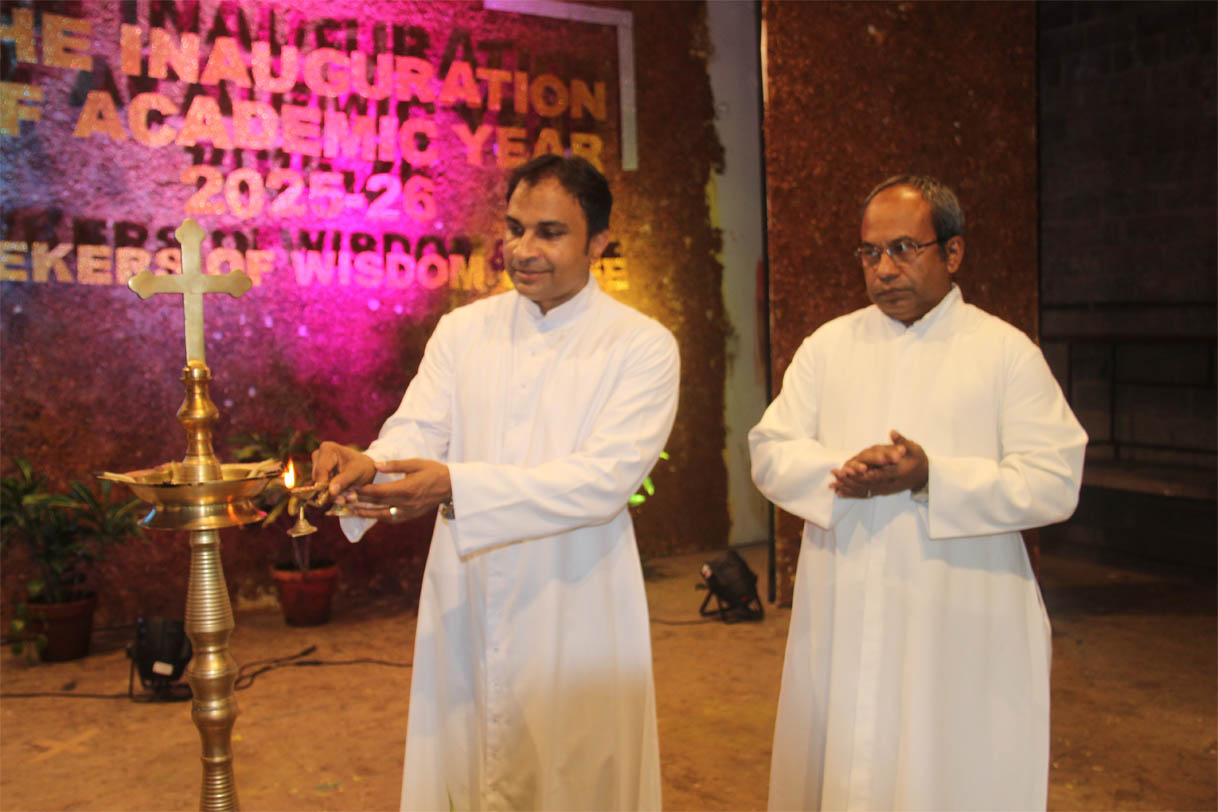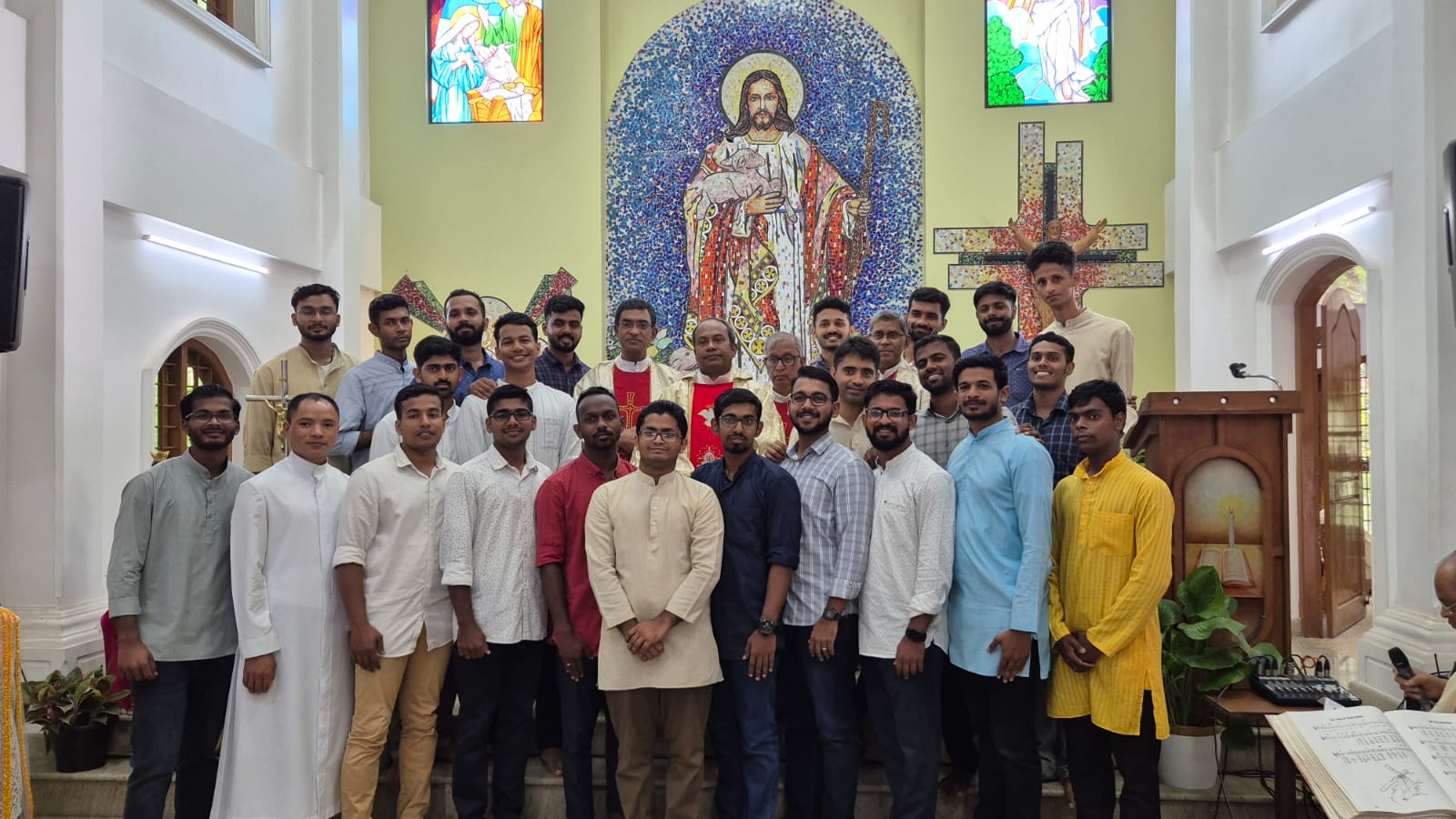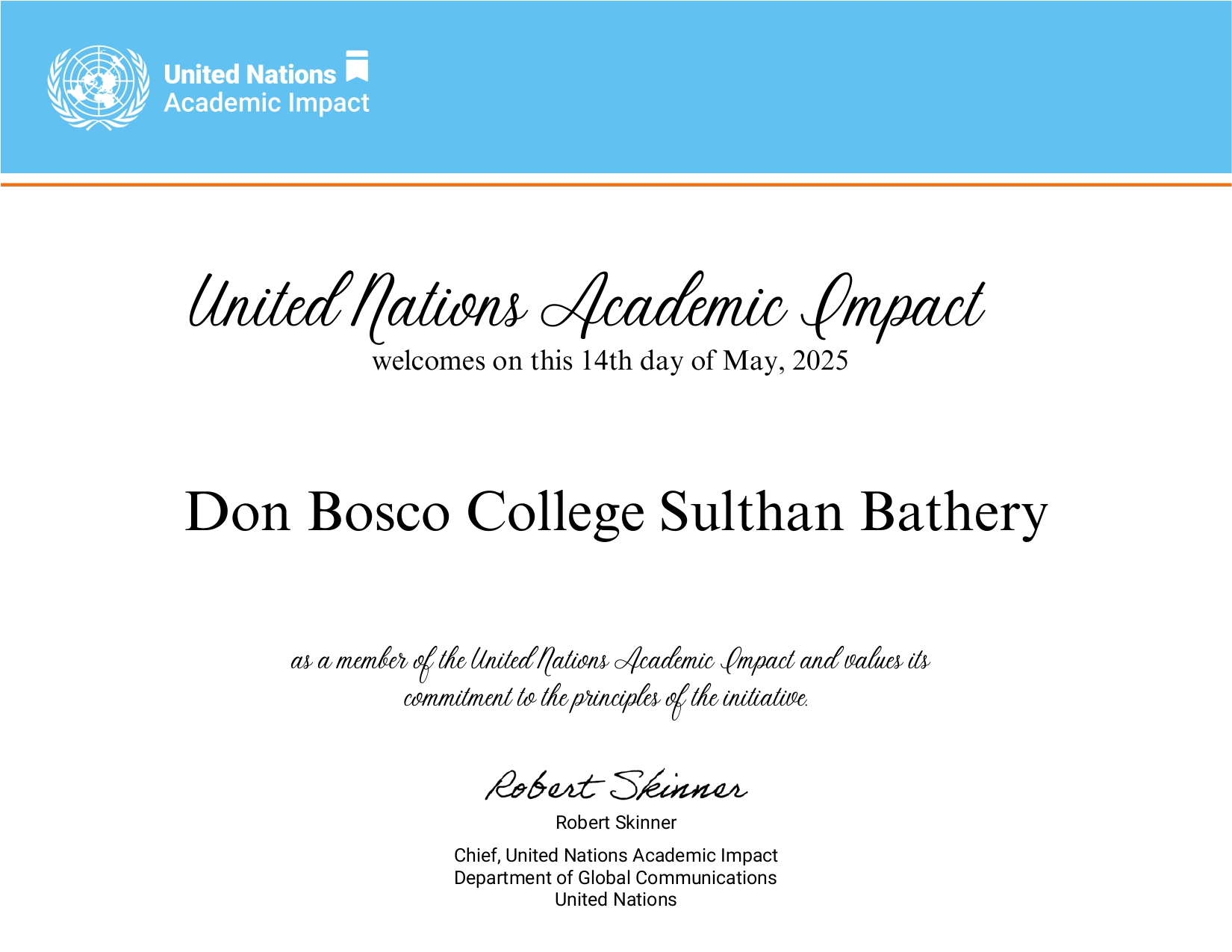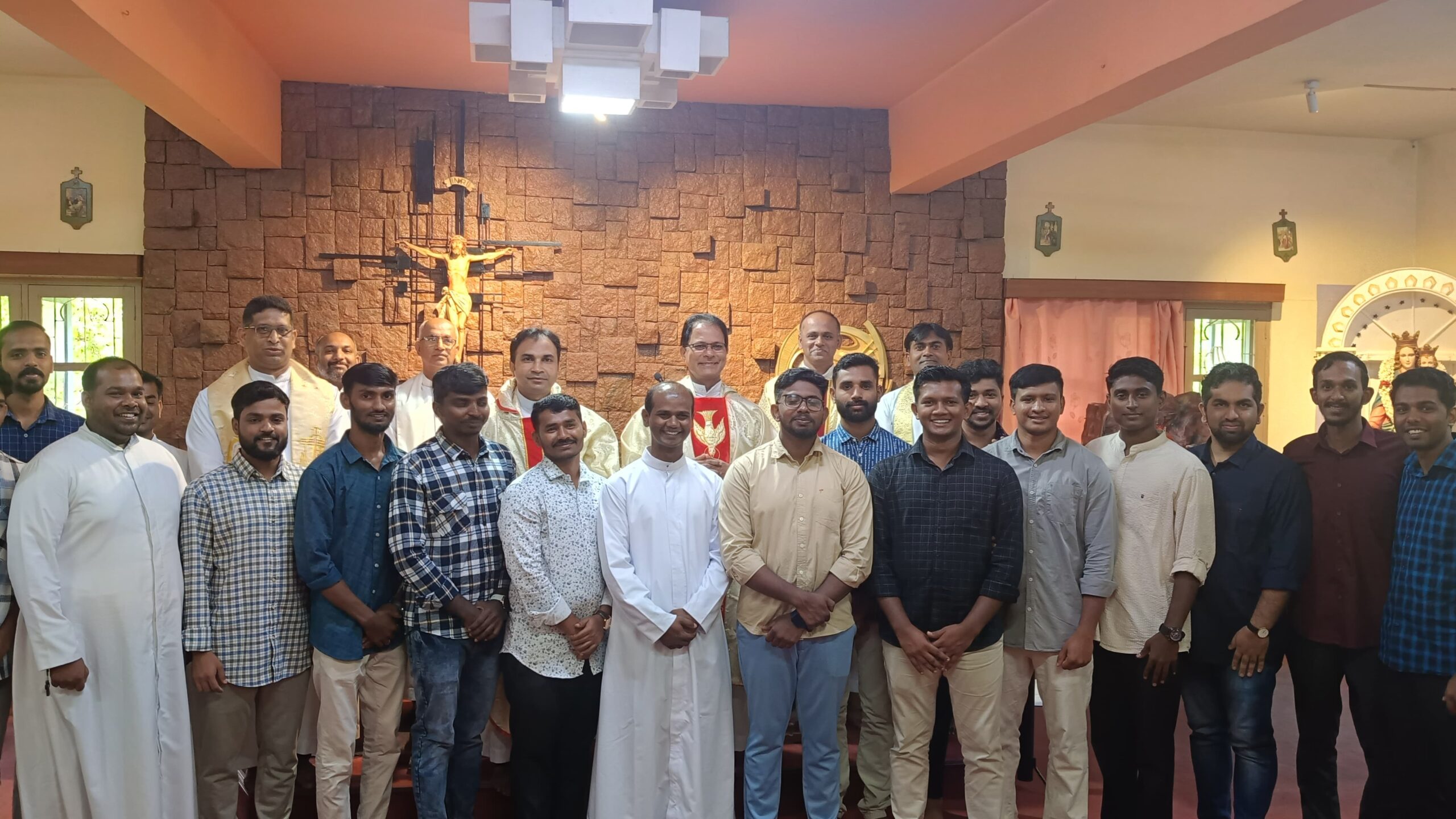
THE 400th ANNIVERSARY OF THE DEATH OF ST FRANCIS DE SALES (1622-2022)
We celebrate the 400th anniversary of the death of one of the greatest figures of the Church and of history – St Francis de Sales (1622-2022), Bishop of Geneva and Doctor of the Church. He is the patron and titular of our Congregation, which Don Bosco named after him “The Society of St. Francis de Sales”. The name of “Salesians” was chosen by Don Bosco because he wanted his sons to draw inspiration from and be motivated by the charity and zeal of St Francis de Sales. We read in the Biographical Memoirs: “On the evening of 26 January 1854, we gathered in Don Bosco’s room. Present were Don Bosco, Rochietti, Artiglia, Cagliero and Rua. Don Bosco suggested that with the help of the Lord and St Francis de Sales, we should first test ourselves by performing deeds of charity towards our neighbour, then bind ourselves by a promise and later, if possible and desirable, make a formal vow to God. From that evening onwards those who agreed – or would later agree – to this were called ‘Salesians’” (BM V, 8).
Two qualifications are expressly attributed to St Francis de Sales by our Constitutions (art. 9) – “zealous pastor and doctor of charity” – which have made him our model and author of predilection for the deepening of our pastoral charity (ref. The Project of Life of the Salesians of Don Bosco, p.152). We know that Don Bosco chose St Francis de Sales as his protector from the very beginnings of his priesthood. One of his ordination resolutions was: “The charity and gentleness of St. Francis de Sales are to be my guide in everything” (BM 1, 385). He chose him as the titular of his first Oratory in Valdocco, and sometimes had him as a guide in his dreams (Cf. BM IX, 84). We find in the Biographical Memoires of Don Bosco that Don Bosco believed that the spirit of St Francis de Sales was the best suited at the time to the education and upbringing of the working classes (BM II, 197). When he began the Missions, he said: “With the gentleness of St Francis de Sales the Salesians will draw the peoples of America to Jesus Christ” (BM XVI, 394). The formation of the first Salesians was guided by the great writings of St Francis de Sales.
Our Constitutions give ample evidence that the spirit and spirituality of Don Bosco was inspired by the life and spirituality of St Francis de Sales as we find in the following articles:
- “Inspired by the goodness and zeal of St Francis de Sales, Don Bosco called us Salesians and gave us a programme of life in the motto: “Da mihi animas cetera tolle” (C.4);
- “Don Bosco entrusted our Society in a special way to Mary, whom he made its principal patroness, as well as to St Joseph and to St Francis de Sales, the zealous pastor and doctor of charity” (C. 9)
- “Inspired by the optimistic humanism of St Francis de Sales, he believes in man’s natural and supernatural resources without losing sight of his weakness” (C. 17)
- The Salesian relies on the intercession of St Francis de Sales in order “to be faithful day by day” (C. 24) to his religious consecration.
Our Rector Major Fr. Angel Fernandez Artime wrote in Acts 432 that the main objective we set for ourselves in this anniversary is to make the figure, spirituality and pedagogy of St Francis de Sales known among us Salesians.
Brief Life-sketch of St Francis de Sales
Francis was born on 21 August 1567 in the French border region of the duchy of upper Savoy, in the family castle of Sales in Thorens. He was the oldest of the thirteen children of Monsieur Francis de Boisy and Madam Frances de Boisy. At an early age already Francis de Sales manifested signs of his extraordinary piety. After his first communion and confirmation at the age of 10, he visited Jesus in the Blessed Sacrament and prayed the rosary daily, and read books on the lives of saints. A year after his confirmation Francis decided to dedicate his life to the Church and shaved his beloved long and curly blonde hair, in a process called tonsure, as a first act of consecration to the priesthood.
His life straddled two centuries, the 16th and 17th, and he summed up in himself the best of the teachings and cultural achievements of the century drawing to a close, reconciling the heritage of humanism and striving for the Absolute that is proper to mystical currents. He received a very careful education; he undertook higher studies in Paris, where he dedicated himself to theology, and complying with his father’s wishes he studied jurisprudence at the University of Padua, graduating brilliantly with degrees in canon law and in civil law.
Overcoming his father’s resistance, Francis followed the Lord’s call and was ordained a priest on 18 December 1593. His early years of priesthood in the Calvinistic district of Chablais were largely coloured, perforce, by extraordinary missionary controversy. He preached with courage, and his technique of patient dialogue and prayer was to prove a determining factor in the return of Thonon and Chablais to the Catholic faith. In 1602, he became Bishop of Geneva, in a period in which the city was the stronghold of Calvinism so much so that his episcopal see was transferred to Annecy “in exile”.
He was a man of prodigious action, an apostle devoured by zeal, a bishop goaded on by a vivid awareness of his responsibilities as a shepherd of souls, totally dedicated to the people God had entrusted to his care. He was tireless in visiting his 450 parishes; he organized the further formation of his clergy, proclaiming that learning was the eighth sacrament for a priest. He concerned himself with the reform of monasteries and the catechesis of the young. He spent hours in the confessional, dialogued with the Calvinists, preached the Advent and Lenten homilies in many cities in Savoy and other parts of France, undertook spiritual direction both viva voce and through correspondence, took part in theological discussions, and with his friend Senator Antonio Favre founded the Florimontane Academy; and in the midst of this multitude of activities he found time to publish in 1608 his Introduction to the Devout Life (Philothea) and in 1616 his Treatise on the Love of God (Theotimus).
At Dijon in 1604 he met the Baroness Jane Frémyot de Chantal, aged thirty-two, a widow at the time with four children. Between these two saintly people there developed a strong spiritual friendship. In 1607 Francis suggested to her an important project: the founding of a new kind of Order of Contemplative Sisters who would be engaged in the care of girls and widows, and be permitted to leave the convent to visit the sick and the poor.
In 1622 he was obliged to undertake a painful journey to Avignon to accompany the members of the royal family of France via Rodano to Lyons. He was a guest at the Bellecour convent of the Visitation Sisters at Lyons and there met the Reverend Mother Jane de Chantal for the last time. Francis died of a stroke on 28 December 1622. His funeral was solemnised at Annecy on 24 January following, and his remains transferred to the Visitation Convent.
Francis was canonized on 19 April 1665 by Alexander VII. Many years later in 1877 Pius IX declared him a Doctor of the Church – the first French-speaking member of that august assembly. Such was the life of St Francis de Sales, a life full of extraordinary splendour and benevolence.
The spirituality of Saint Francis de Sales
The Spirituality of St Francis de Sales is a practical everyday spirituality for living in the modern world, as lived and shared by St Francis de Sales (1567-1622) and St Jane de Chantal (1572-1641). It gives expression to a particular mode of spiritual journey embracing the duties of our state in response to the universal call to holiness… in the words of St Francis de Sales, “Bloom where you are planted.” It’s a “spirituality of the heart,” as relevant today as at the time of St Francis de Sales himself, an all-embracing, down-to-earth spirituality for everyone.
The essence of the spirituality can be found in the Introduction to the Devout Life, written by St Francis de Sales at the beginning of the 17th century. The book, often referred to as a spiritual classic, contains the collective wisdom of the first sixteen centuries of Christian experience and is divided into five parts: (1) Instructions and exercises needed to lead the soul from its first desire for the devout life until brought to a full resolution to embrace it; (2) Various instructions for elevating the soul to God through prayer and the sacraments; (3) Instructions on the practice of virtue; (4) Necessary counsels against frequent temptations; (5) Exercises and instructions for renewing the soul and confirming it in devotion.
St Francis de Sales wrote another spiritual classic Treatise on the Love of God. It comprises of twelve books written for individuals more advanced in the spiritual life and addresses topics such as the human tendency to love God, meditation and prayer, an explanation of the history of divine love, the difference between benevolent and complacent love, and affective and effective love. The Treatise on the Love of God focuses on the fundamentals of Francis’ science of love of God and the application of these basic principles. Francis’ spirituality is found in numerous other writings including many of his sermons and letters.
Doctor of Divine Love and a Man of Great Kindness
Francis de Sales, Doctor of Divine Love, did not rest until the faithful accepted God’s love, to live fully in it, turning their hearts to God and uniting themselves with him. This is how, under his direction, many Christians walked the path of holiness. He showed them that all are called to live an intense spiritual life, whatever their situation and profession, for “the Church is a garden filled with infinite flowers where there are flowers of different sizes, colours, fragrances – in brief, of different perfections. For they each have their price, their grace and their substance, and make a most pleasing perfection of beauty in the gathering of their rich variety” (Treatise on the Love of God. Complete Works, IV, p. 111).
A man of great goodness and kindness who knew how to express God’s mercy and patience to those who came to speak with him, he taught an exacting but serene spirituality based on love, for loving God “is the sovereign happiness of the soul for this life and for eternity” (Letter to Mother Marie-Jacqueline Favre, 10 March 1612. Complete Works, XV, p. 180). With great simplicity he formed each person in contemplative prayer: “You must prostrate yourself before God and remain there at his feet: he will certainly understand by this humble attitude that you are his and that you want his help even before you can speak about it” (Letter to Jeanne Françoise Frémyot de Chantal, 14 October 1604. Complete Works, XII, p. 325). His goal was to lead souls to the heights of perfection in his concern to unify the person around the heart of existence: a life of intimacy with the Lord, through which the human being can receive perfection and become better (cf. Treatise on the Love of God. Complete Works, IV, p. 49). He was desirous of enabling each person to return to Christ and to set out anew from Christ to lead a good life, for God has given each one the government of his faculties, which he must rightly place under the direction of the will (cf. Treatise on the Love of God. Complete Works, IV, pp. 23-24).
Since he was passionately in love with God and man, his attitude to people was fundamentally optimistic and he never failed to invite them, to use his own words, to flourish where they were sown. By following the spirituality of St Francis de Sales a person seeks to become a child of God by imitating Jesus Christ, in the context of interior prayer which allows God’s light to illumine one’s intellect and His love to fill the heart.
Don Bosco and Francis de Sales
Let us look at the principal characteristics of this remarkable saint and seek to understand why Don Bosco was inspired to choose him as our model and protector.
Don Bosco began to know and revere Francis in the Seminary at Chieri, and then at the ecclesiastical boarding college in Turin. These institutes had been placed under the patronage of St Charles Borromeo and St Francis de Sales. It was here too that the learned and saintly Fr Joseph Cafasso, a man imbued with the spirit of St Francis who encouraged Don Bosco’s apostolate and was his confessor for twenty years, taught.
It is probable that Don Bosco actually did read at least the Introduction to the Devout Life, seeing that he was to recommend it to his young charges in the first pages of his Companion of Youth in 1847; but we are not sure if he read any other writings of Francis. In any case, whatever he knew of Francis’ writings as a Doctor of the Church, theologian and spiritual director, was assuredly greatly surpassed by his overall knowledge of the pastoral expertise of Bishop Francis, ardent with apostolic zeal, who taught and practiced his Salesian system inspired by love. Indeed, the fourth of the resolutions John Bosco took on the vigil of his ordination to the priesthood on 5 June 1841 was, “In all things I shall be guided by the charity and gentleness of St Francis de Sales”. Later on he chose as his motto “Give me souls; take away all else”, and when explaining this saying to Dominic Savio, he simply mentioned that the maxim had been used by St Francis de Sales.
In the Memoirs of the Oratory of St Francis de Sales, Don Bosco made it abundantly clear why he had chosen Francis as patron and model. His words are important and deserve to be underlined. In 1844 Don Bosco was appointed chaplain to the institute of Marchesa Giulia di Barolo, and she agreed to give him two large rooms for the use of his boys, which Don Bosco transformed into his ‘first Oratory church’. In the Saint’s own words, “The name St Francis de Sales was given for two reasons:
- Because the Marchesa di Barolo had in mind to found a Congregation of priests under this title and with this intention had a painting of this Saint made that even today hangs at the entrance of the building.
- Because our ministry demanded great calm and kindness, and had therefore been placed under the protection of this Saint. We wanted Francis to obtain from God the grace that would help us to imitate him in his remarkable gentleness and zeal for souls. A further reason was to place ourselves under his protection, so that he would help us from heaven to imitate him in combating the adversaries of the Church, who were gaining numbers in Italy and especially in Turin.”
In his Regulations of 1847 Don Bosco spoke of the imitation of Francis ‘in his charity and kindly demeanour’, an attitude so necessary for the success of his educative work.
We know that Don Bosco also admired other great Saints noted for their great pastoral work: Philip Neri, Charles Borromeo, Vincent de Paul, Alphonsus Liguori. However, for him Francis de Sales was number one for his intuition and his reasoning. He saw him as the Saint who fitted in best with his own spirit and mission, the most suited to illumine and inspire him in his priestly and educative apostolate. In many ways Francis had faced and conquered similar difficult problems, and he was thus a beacon indicating the best way to follow. It will be helpful to gain a better understanding of this affinity of John Bosco the disciple with Francis the model.
Don Bosco tells us that he was attracted by two essential aspects of the moral and spiritual qualities of Francis de Sales:
- His apostolic energy, his zeal for the salvation of souls, his defence of the truth, his fidelity to the Church
- The Christlike gentleness that permeated his zeal: his charming manner, his patience, his extraordinary sensitivity
The vital source of both these qualities was a deep, solid and decisive conviction, namely, that love is the totality of God and the totality of man. Thus, it is possible to group the affinities found in our two saints under the three following aspects.
In 1939 Bishop Lavallée, Rector of the Catholic Faculty at Lyons, thus expressed his understanding of the affinity of the two saints: ‘The relationship between Francis de Sales and John Bosco is evidenced in their common aim: they tackled the evils that afflict humanity with the miraculous weapon of charity.’
The God they adored and preached is the Father so full of tender mercy, and Jesus the Good Shepherd who gives his life for his sheep. The Treatise on the Love of God tells the story of this patient divine love, and Jesus reveals this love through a Visitation Sister. Don Bosco taught his young charges, ‘You are the light and the love of the God who created you and who created you for your happiness.’ The last of Don Bosco’s labours was to build the Church of the Sacred Heart in Rome as though to proclaim that all his work had the sole aim of being an expression of divine charity.
What was their vision of the human being? Our two saints saw man/woman most vividly as ‘Godward oriented’, destined for eternal joy, capable of an earnest response to his love. The substance of human beings is the heart, and their vocation is to love. The purpose of the human being, of the universe, of human affairs and of every personal destiny is the loving encounter between God who seeks the human being and the human being who seeks God. From this love there flows the willing encounter of man with his neighbour. Genuine education then is the initiation to true love; salvation begins when love begins, and to love there is no need to await extraordinary occasions; it is possible always and everywhere, in our duties and in our daily encounters.
St Francis de Sales is an exemplary witness of Christian humanism. With his familiar style, with words which at times have a poetic touch, he reminds us that human beings have planted in their innermost depths the longing for God and that in him alone can they find true joy and the most complete fulfilment. Pope Benedict XVI while speaking about St Francis de Sales highlighted the great importance of this saint in the Church: “It is not for nothing that we rediscover traces precisely of this teacher at the origin of many contemporary paths of pedagogy and spirituality; without him neither St John Bosco nor the heroic ‘Little Way’ of St Thérèse of Lisieux would have come into being”.
Saints beget saints. Don Bosco was fascinated by the virtues and example of St Francis de Sales. He resolved to make him his model and followed the path traced by him in his apostolic endeavours and in the pursuit of perfection in his life. He too in turn nurtured saints in his school of sanctity.
Wish you all a Happy Feast of Don Bosco our Father and Founder and abundant blessings of the Lord through his intercession!
Affectionately in the Lord,
Fr. Jose Thomas Koyickal sdb,
Provincial.
-
LENT: A JOUR...
29 March 2025 -
“ANCHORED IN...
14 February 2025 -
JUBILEE 2025...
08 February 2025 -
THE BIRTH OF...
08 January 2025 -
MONTH OF NOV...
13 November 2024 -
REDISCOVERIN...
13 October 2024 -
SYNODALITY A...
13 September 2024 -
INDEPENDENCE...
04 August 2024 -
THE SACRED H...
04 August 2024 -
THE SPIRITUA...
04 August 2024










